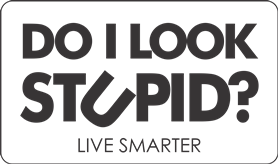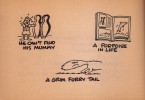What do you think is the best mantra for success? Is it about having a good mentor? Is it about having a great education? Or is it about better knowledge? If you believe that having a great mentor is enough for achieving success then you must understand that a mentor can only polish what you have inside you. Only a diamond can be polished to a greater shine. Any random rock will never turn to diamond by polishing. So? Is it better education that guarantees you success? Well, as far as I am concerned, education is just a means of acquiring knowledge and, hopefully, a way of thinking. It is right that without education, you cannot have proper knowledge but having only education is not enough for success. You certainly need to have a good education and develop knowledge about concepts and ideas – however, even these may not be enough. Sometimes, you need a guiding light that can set you on the right course.
When we think of guides who can help us on our way, the best possible way to get to know them is to read about what they have to say. Reading good, relevant books can make a big difference between successful and unsuccessful people. As Jim Rohn once said, “Poor people have bigger TVs and rich people have bigger libraries.” To help you identify your guides, I am outlining some of the better self-help books that have changed the lives of many in the past and could change those of others in the future. Some of the advice in some of the books have been controversial; so do exercise caution!
1. The 7 Habits of Highly Effective People by Dr. Steven R. Covey. This is a well-known bestseller with almost 15 million copies sold all over the world. It is a self-help book that focuses on how one can be effective in attaining goals by aligning oneself to principles of a character ethic that he believes are universal and timeless.
The seven habits move us through three stages – dependence, independence and interdependence. The first three habits have to do with self-mastery, of moving from dependence to independence.
- Be proactive.
- Begin with the end in mind.
- Put first things first.
The next three habits deal with interdependence.
- Think win-win.
- Seek first to understand, then to be understood.
- Synergize.
The last habit is concerned with renewal and continuous improvement in both the personal and interpersonal spaces.
- Sharpen the saw.
Continuous improvement is important to balance and renew your resources, energy and health to create a sustainable, long-term and effective lifestyle.
For those who want positive changes in their perspective and way of thinking, this book is a must read.
2. Rich Dad Poor Dad by Robert Kiyosaki. This book is an interesting depiction of how the difference in thinking of two people can lead them to two radically different paths. Written as a set of parables, Rich Dad Poor Dad advocates financial independence and building wealth through investing, real estate investing, starting and owning businesses, as well as increasing one’s financial intelligence to improve one’s business and financial aptitude.
After reading this book, you will get a good understanding of the very basics of investing and what rich people think and do that makes them rich. The book was a huge bestseller and has sold around 26 million copies. However, the book has also been criticised for what some people have called ‘faulty advice’; since you will be investing your own hard-earned money if you were to follow Kiyosaki’s advice, I would strongly recommend that you consult your financial advisors before shelling out dough.
3. Think and Grow Richby Napoleon Hill. This book is a classic, having been published in 1938. It contains philosophies and advice from more than five hundred of the greatest men that have lived on earth and those who succeeded in achieving what they believed and desired. The book was written after some three decades of research and after interviewing some of the brightest minds of their times. It tells you how you can change your thinking and convert your mind into a weapon to succeed in every aspect of your life.
Hill studied the characteristics of achievers and developed 13 principles in the form of a philosophy of personal achievement. The 13 principles or steps are: 1. Desire; 2. Faith; 3. Autosuggestion; 4. Specialized Knowledge; 5. Imagination; 6. Organized Planning; 7. Decision; 8. Persistence; 9. Power of the Master Mind; 10. The Mystery of Sex Transmutation; 11. The Subconscious Mind; 12. The Brain; 13. The Sixth Sense
This book is not just another novel to read, but it is a course that you have to repeat three or four times to fully understand what the author wants to communicate.
4. How to Win Friends and Influence People by Dale Carnegie. This outstanding book, written in 1936, gives you an insight of how to interact with people so that they get maximum effect of your personality. This book focuses on the fact that a long lasting success can only be achieved through right and proper interaction with people.
The book is divided into the following sections:
- Twelve Things This Book Will Do For You
- Fundamental Techniques in Handling People
- Six Ways to Make People Like You
- Twelve Ways to Win People to Your Way of Thinking
- Be a Leader: How to Change People Without Giving Offense or Arousing Resentment
- Letters That Produced Miraculous Results (not available in recent editions)
- Seven Rules For Making Your Home Life HappierCarnegie’s book is quite outstanding and relevant even to this day. When Warren Buffett was 20, he took a course based on the book and proudly displays the diploma even today! Buffett obviously learnt something valuable from the book; I can assure you that so will you!
5. The Power of Your Sub-Conscious Mind by Dr. Joseph Murphy. In this book, Dr. Joseph Murphy makes an assertion and backs it with plenty of case studies. And that assertion is that if we change our thoughts and are able to focus these thoughts on the things we want in life, there is no force in the whole universe that can stop us from achieving them. According to Dr. Murphy, many of our thoughts are on auto-pilot and we can, and must, change the way we think and focus on what we want.
Dr. Murphy offers practical, easy-to-use tips on how to use our conscious mind to plant seeds that grow and influence our subconscious mind, the seat of our emotions, fears, strengths and weaknesses. We create our realities with our attitudes, beliefs and thoughts, and never do anything to control our minds. Instead we just go on sleepwalking and leave life up to chance.
The Power of Your Subconscious Mind can help you heal yourself, banish your fears, sleep better, enjoy better relationships and just feel happier.
After reading this book thoroughly, you will understand how your thoughts and mind work; not only that, this book also teaches you how to control them.
6. The Leader Who Had No Title by Robin Sharma. This is a book from the author of the bestseller “The Monk Who Sold His Ferrari.” In this book, Robin Sharma puts great emphasis on the fact that you do not need any special title or rank to deliver your best performance. Once you have read this book, you will understand that titles and ranks are only hierarchal means to maintain order in an institution and it has nothing to do with responsibility and performance. This is a great read for those who want to enhance their current performance at work.
The book is the story of a young army veteran who returns to society and struggles to find meaning in his work and in his life. He meets a man who, over the course of a day, introduces the veteran to four unique individuals. The meetings put life back into the vet as the individuals illuminate the path to meaningful work and, with it, a sense of purpose to life in general.
7. The Power of Positive Thinking by Dr. Norman Vincent Peale. This book is a description of the principles and philosophies that are needed for living a happy and fulfilling life. The best thing about this book is that the author has applied all the principles discussed in it to his own life and has got tremendous results. Even after fifty years of its release, the book is still considered a great priceless treasure of self-help wealth.
The book has had its share of criticism on two counts – one, that many of the anecdotes in the book are hard to substantiate; and two, many of his techniques are a well-known form of hypnosis. Do bear these two points in mind before you get into the book.
8. See You At the Top by Zig Ziglar. Released in 1975, the book was, and is, a tremendous resource for those who were seeking help in the field of self-improvement. The book is full of insights, philosophies and principles that are essential ingredients of a successful life.
In the book, Ziglar uses the imagery of a flight of stairs next to an elevator that is ‘out of order’. The idea is that while each step gets you closer to the ultimate goal of a happy purposeful life, the steps must be taken in order – there are no shortcuts. This book puts great emphasis on the six steps of getting to the top – Self-image, Relationships with others, Goals, Attitude, Work and Desire.
9. The Alchemistby Paulo Coelho. The main theme of this book is about finding one’s own destiny. In The Alchemist, the author tries to tell the reader that if he or she really wishes for something, the whole universe conspires to make it possible for him/her to achieve that. The book is written as an allegorical novel but it is more like a self-help book that helps readers to direct their minds to the right way to achieve their goals.
10. The 48 Laws of Power. By Robert Greene. This book has all those laws that you need to beat your competition and hold power. This book can be a great source for those who want to understand the mysterious behaviours of others and want to reach to the top and taste immense power. It is one of the most requested books in the American prison libraries!
Greene formulated some of the ideas in The 48 Laws of Power while working as a writer in Hollywood and observing that today’s power elite shared similar traits with powerful figures throughout history.
Greene’s book has got some flak; critics have felt that Greene’s so-called laws are based on isolated examples, and not on solid research and that Greene offers no evidence to support his world view. Also, Greene’s laws contradict each other.
I don’t say that you need to read all the above mentioned books (although there can be no harm whatsoever!) but if you read and understand even one of the books, you will understand the difference between successful and unsuccessful people. It will then be easy for you to think, plan and prepare for a more meaningful and successful life.
Visual courtesy: https://www.flickr.com/photos/pirillan/







